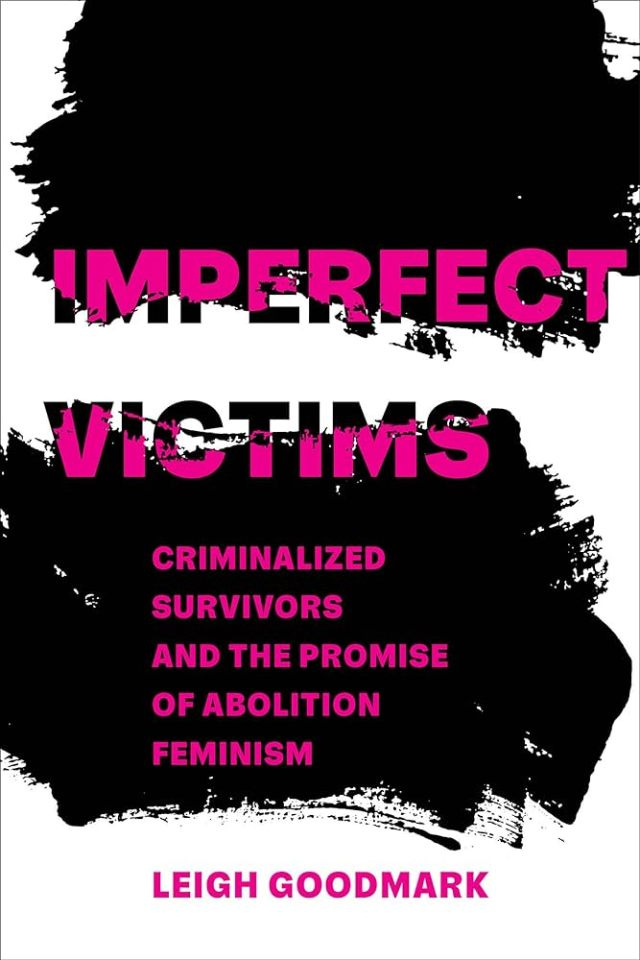Criminalizing Survivors
"Imperfect Victims" takes a deep look at how the U.S. criminal justice system mistreats victims of domestic violence, sex trafficking, and other crimes more prevalent against women.
Imperfect Victims: Criminalized Survivors and the Promise of Abolition Feminism by Leigh Goodmark | Reviewed by Liz Nolan Brown for the June 2023 issue of Reclaim
If you aren’t in the mood to get fired up, steer clear of Leigh Goodmark’s new book, Imperfect Victims. Goodmark takes a deep look at how the U.S. criminal justice system mistreats victims of domestic violence, sexual assault, and other crimes more prevalent against women.
This might mean using material witness warrants and contempt charges to compel testimony against abusers (“in some cases, victims are held in the same prisons as those arrested for crimes against them,” notes Goodmark). It might mean charging teenagers as sex traffickers for doing the bidding of a violent pimp, or handing out harsh sentences to mothers who fail to prevent a partner’s abuse of their kids.
From felony murder statutes (which “enable prosecutors to extend culpability for murders to the abused partners of the people who actually commit those murders”) to no-drop prosecution policies (“committing prosecutors to pursuing any case of intimate partner violence where sufficient evidence existed”), Goodmark details the myriad tools prosecutors use to criminalize survivors of abuse, exploitation, and mistreatment. A lot of these policies were pushed by feminists as a means to help women. They have backfired spectacularly.
Goodmark’s ultimate solution: abolition feminism, which “imagines a world where the solution to social problems, including violence, is not police, punishment, and prison” and moves “away from a mindset that equates punishment with justice.” Abolitionism calls for abolishing prisons as well as “the tools the state uses to exercise punitive control (police, electronic surveillance, probation, parole) and those that substitute for prisons (child welfare systems, mental health facilities, civil commitment).”
But Goodmark also offers more incremental and less radical ideas for criminal justice reform and for helping criminalized victims. Whether or not you agree fully with the ideas of abolition feminism, Imperfect Victims is essential reading for anyone interested in how our current system fails female survivors of violence and exploitation and what steps we can take to remedy this.
This review comes from the first issue of the Feminists for Liberty zine, which we released last June. We’re currently seeking (paid) contributors for our next issue — more details here.
We’re also in the midst of rolling out content from that first issue online. Here are some other pieces we recently published from it:
Review of Reclaiming the Mainstream: Individualist Feminism Rediscovered
5 Things I Discovered While Traveling the World as a Libertarian Feminist
Our plan with each zine is to sell it first as a complete (print or PDF) edition, to help us raise money to pay outside contributors. (You can still buy a print copy if you like!) Then, eventually, we’ll publish some individual pieces on our website and through this Substack newsletter.




